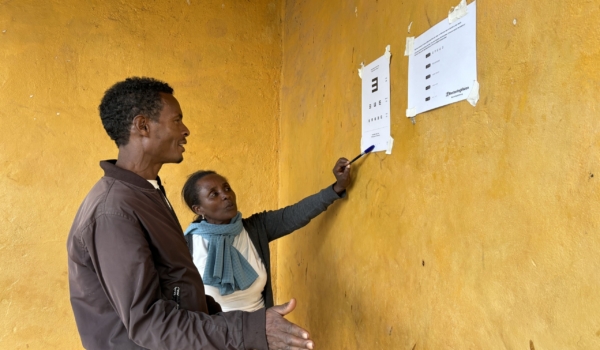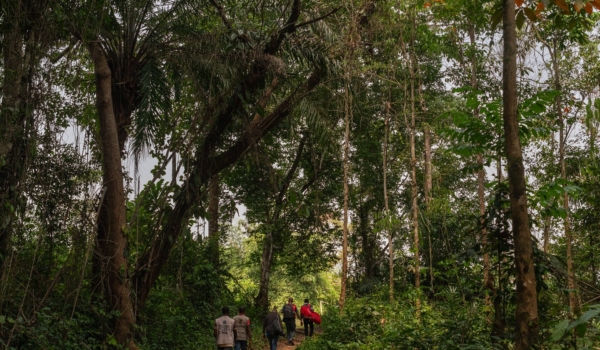Benjamin Killen is Last Mile Health’s County Supply Chain Specialist for Grand Bassa County in Liberia. Thanks to the generous support of the Eliza Forrest Kaye Bromfield Leadership & Development Fund, Ben has been taking a post-graduate diploma course in Global Health Procurement and Supply Chain Management from the Empower School of Health in collaboration with Kent State University. Below, he reflects on how he is applying lessons from the course to strengthen Liberia’s supply chain.
I grew up in Grand Bassa County, so I am glad to be back here to serve my community.
My first introduction to supply chain was when I worked at Arcelor Mittal Liberia. While at Arcelor Mittal, I was recruited to join a management training program that would strengthen my skills in supply chain and prepare me for a leadership role in the organization. After four years at the company, I left to pursue my graduate studies in supply chain management. I later took a job at the International Rescue Committee (IRC) where I worked as a commodities coordinator.
Up until this point, most of my work experience and graduate studies had been in the commercial supply chain. When I joined IRC, my career began to transition to pharmaceutical management and public health supply chain. After two years at the IRC, I joined Last Mile Health. I saw this transition as an opportunity to better understand the work of community health workers. I was eager to build upon my work at IRC and partner with county pharmacists to ensure supply processes were strengthened so that community health workers could deliver essential medicines to their communities.
I’ve now been with Last Mile Health working as a county supply chain specialist for one year. A strong National Community Health Assistant Program requires a strong national supply chain system. From the planning and quantification processes to procurement, inventory management, storage, and distribution there are still challenges within Liberia’s supply chain system.
I decided to apply to [Last Mile Health’s] Teachers & Learners Fund for a postgraduate course in public health supply chain to help me better navigate these systems challenges. The course is interesting because it has expanded my knowledge on the numerous challenges and system gaps and the need for more capacity building to improve our public health supply chain systems. The post graduate diploma course in Global Health Procurement and Supply Chain Management has helped me reflect on what is happening around me and how the system is being managed, as well as my role in addressing some of the challenges.
You can’t solve every problem at once, you have to attack one item at a time. Our own focus has been on data management—from training on the usage of logistic management information system tools, to on-the-job training and mentorship visits, to data collection, and entry in the eLMIS (Liberia’s logistics software) and data validation to improve data quality. Because we rely on information from community health workers, supervisors, and staff at health facilities to inform the planning process and the type and quantity of commodities that will be purchased, data management is important to a well-run supply chain. We are supporting the data management processes to ensure accurate information makes it from the last mile at the facility level to the national level. This helps to ensure the appropriate drugs and supplies are fully stocked where they are needed most. I imagine a five year old child who has malaria and is dependent on a community health worker who provides him with antimalarial drugs to survive. I have seen the need for the commodities at the community level and how important they are.
I am from a family where my sisters are medical practitioners, (a nurse and doctor) but I’ve never thought I would have an interest in that. But I now enjoy working with health facility staff, and it has become my personal mission to work as hard as I can to make sure everyone in remote communities—starting with Grand Bassa County—has access to the drugs they need. I see myself as a service man—one who provides services in the community, not just as a career, but to save lives.
To provide this kind of service has become a passion, but I can only do so successfully if I have the requisite knowledge, and know how. I am grateful to work for an organization that allows me to not only further my career in public health supply chain, but work to ensure no one dies needlessly for lack of access to medicine.
Last Mile Health’s Teachers & Learners Fund was launched in December 2019 to provide professional development and continuing education opportunities aimed at strengthening an employee’s skills to further fulfill Last Mile Health’s mission. Since its inception, 18 staff members have applied funds to further their skills in areas including project management, financial management, public health, and data analysis.





